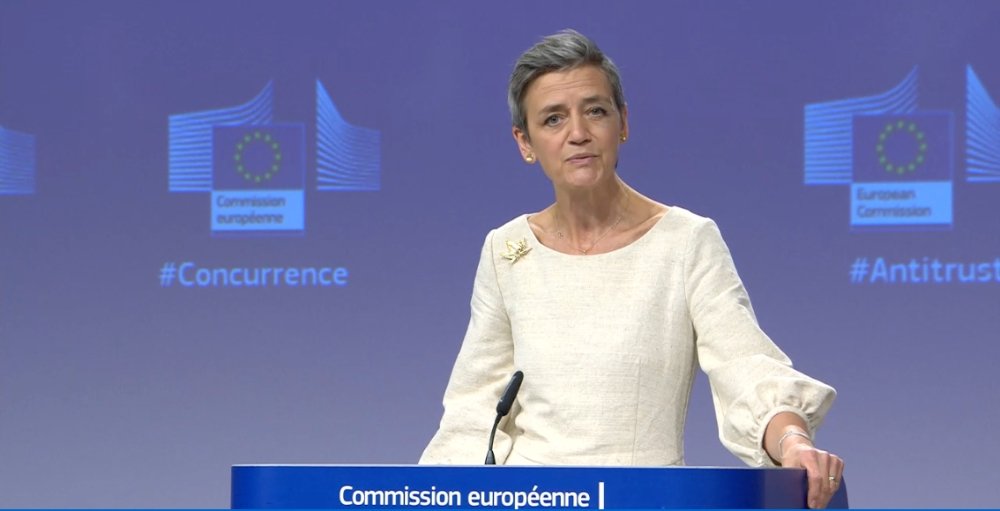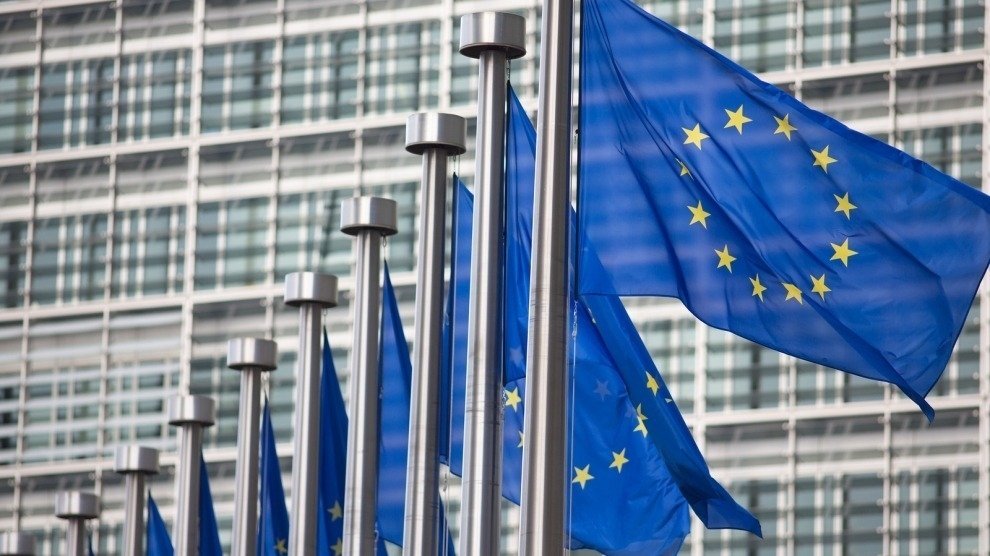30 April 2021 The European Commission has announced its "preliminary conclusion" that Apple is in breach of EU competition laws over the App Store.
As previously predicted, the European Commission has concluded that the App Store is in breach of European Union laws.
Ahead of the formal announcement, EU antitrust chief Margrethe Vestager tweeted the broad outline of the investigation's conclusions.
Our preliminary conclusion: @Apple is in breach of EU competition law. @AppleMusic compete with other music streaming services. But @Apple charges high commission fees on rivals in the App store & forbids them to inform of alternative subscription options. Consumers losing out.
— Margrethe Vestager (@vestager) April 30, 2021
"App stores play a central role in today's digital economy," added Vestager in a statement. "Our preliminary finding is that Apple is a gatekeeper to users of iPhones and iPads via the App Store."
"With Apple Music, Apple also competes with music streaming providers," she continued. "By setting strict rules on the App store that disadvantage competing music streaming services, Apple deprives users of cheaper music streaming choices and distorts competition."
"This is done by charging high commission fees on each transaction in the App store for rivals and by forbidding them from informing their customers of alternative subscription options," she said.
EU says Apple has an effective monopoly
In an EU press briefing, Vestager added that the way app stores work, the ones with most users are the most attractive to developers. "That in turn leads to more apps being available for consumers on that app store," she said.
"Due to these network effects, an app store can become a gatekeeper, in particular, is there's only one app store, available in a mobile ecosystem, as is the case for Apple's App Store," she continued. "[Owners] of Apple devices are not likely to switch to another device, such as the Google Play Store, just because music streaming is more expensive on the Apple App Store."
"So, Google Play Store is not an effective alternative to reach the millions of Apple device owners," concluded Vestager. "Apple has a monopoly."
The preliminary conclusion is that Apple has infringed Article 102 of the Treaty on the Functioning of the European Union (TFEU) which specifically prohibits the abuse of a dominant market position.
 Executive Vice-President Margrethe Vestager, in charge of competition policy, announcing the EU's conclusion
Executive Vice-President Margrethe Vestager, in charge of competition policy, announcing the EU's conclusionApple responds to EU conclusions
In a statement to AppleInsider, Apple has responded that it believes the EU's position ignores how the App Store has helped competition.
"Spotify has become the largest music subscription service in the world, and we're proud for the role we played in that," said an Apple spokesperson. "Spotify does not pay Apple any commission on over 99% of their subscribers, and only pays a 15% commission on those remaining subscribers that they acquired through the App Store."
"At the core of this case is Spotify's demand they should be able to advertise alternative deals on their iOS app, a practice that no store in the world allows," continued the spokesperson. "Once again, they want all the benefits of the App Store but don't think they should have to pay anything for that. The Commission's argument on Spotify's behalf is the opposite of fair competition."
Apple prevents developers reaching customers
The European Commission also criticised how Apple limits third-party developers contacting customers in what Vestager described as "anti-steering provisions."
"Apple's anti-steering rules limit the ability of music streaming providers to inform their users about different ways in different ways," she said. "Not only are they not allowed to mention their websites, or any link to them in their own apps. They are also not allowed to send emails to users that created an account in the app in order to inform them about cheaper alternatives."
Vesteger emphasized that the EC's concerns are not limited to Spotify's complaint. The EC objects to how Apple prevents rival companies reaching customers.
"Apple steps in between these competitors, and their customers," she said. "With access to valuable data from the in app payments system. Apple gets insights that music streaming providers don't get. For example, they may no longer be in a position to understand the reasons of termination of a subscription, and communicate with their customers about them."
Apple will be called before the commission to defend its actions. If found guilty, it could be fined up to 10% of its annual revenue from the App Store. Not only is the process likely to take years, but it can appeal any decision made.
Background to the EU antitrust probe
In 2019, Spotify lodged the original complaint with the European Commission. It alleged Apple, through its App Store, put Apple Music competitors at a disadvantage.
In its complaint, Spotify pointed instances like when Apple rejected multiple Apple Watch app submissions in 2015 and 2016. Apple later added third-party API for music streaming apps on Apple Watch with watchOS 5, which has been used by popular services like Pandora.
Spotify also complained about Apple's 30% cut of App Store purchases, a fee levied on all third-party developers. For subscriptions, the rate drops down to 15% after one year of continual payments.
Apple responded to this later, pointing out that none of Spotify's subscribers were paying the 30%. The company's response said that the 680,000 users paying 15% were out of the company's self-reported 100 million paying users world-wide, and there were zero Spotify users paying 30%, which was and is the main thrust of the complaint.
Apple collects the fee on any sales of any digital items. That could be premium in-game currencies, or in this case, a subscription to Spotify. The collected fees are used for Apple's hosting fees, development of the platform and developer resources, payment infrastructure and other expenses.
Stay on top of all Apple news right from your HomePod. Say, "Hey, Siri, play AppleInsider," and you'll get latest AppleInsider Podcast. Or ask your HomePod mini for "AppleInsider Daily" instead and you'll hear a fast update direct from our news team. And, if you're interested in Apple-centric home automation, say "Hey, Siri, play HomeKit Insider," and you'll be listening to our newest specialized podcast in moments.
 William Gallagher
William Gallagher







-m.jpg)






 Andrew Orr
Andrew Orr
 Wesley Hilliard
Wesley Hilliard

 Oliver Haslam
Oliver Haslam
 Christine McKee
Christine McKee
 Amber Neely
Amber Neely










95 Comments
Per the "forbids them to inform of alternative subscription options", that's an industry standard for e-commerce. Try and name a retail web site or digital download store that allows sellers to advertise alternate ways of purchasing the product within the store or site itself. It just doesn't happen. Amazon, eBay, WalMart...they all have clauses that forbid that type of communication. That has never been unique to Apple at any time.
No one forced you to buy an iPhone nor iPad since 2007. No one also forced you to purchase any smartphone application on the App Store if you did buy an iPhone or iPad. Get off your high horse and innovate something out of the EU that the rest of the world finds useful, helpful, and or impactful, and is willing with their one free will to pay for that value.
I just love it when bullies like Ek turn themselves into victims. History is full of those characters.
Performers did quite well when users bought songs and albums to their iPods, the technological basis of the Spotify concept.